
Mame Stewart Josenberger (August 3, 1868 – September 29, 1964) was an American educator, businesswoman, and clubwoman, based in Arkansas for most of her career.

Mame Stewart Josenberger (August 3, 1868 – September 29, 1964) was an American educator, businesswoman, and clubwoman, based in Arkansas for most of her career.
Mary "Mame" Stewart, born August 3, 1868 (sources vary on the year) [1] in Owego, New York, the daughter of Frank Stewart and Mary Elizabeth Turner Stewart. She trained as a teacher at Fisk University, where her classmates included W. E. B. DuBois and Margaret Murray Washington. [2] She remained active with the Fisk University Alumni Association throughout her life. [3]
Stewart taught at the State Normal School for Negroes in Holly Springs, Mississippi, and at Howard School and Fort Smith High School in Fort Smith, Arkansas. [4] From 1903 to 1916, she was "Grand Register of Deeds" for the Order of Calanthe, a fraternal organization that offered burial insurance for African-Americans. She also held the rank of Supreme Assistant Conductress in the organization after 1907. [2]
Josenberger was a businesswoman in Fort Smith, Arkansas. From 1909 she ran her late husband's business as an undertaker. [5] She also owned an auditorium (Josenberger Hall) and a hardware store, and was a landlord in the black community. She was a member of the National Negro Business League, and the Fort Smith Negro Business League. She served on the board of the Standard Life Insurance Company. [2] [4]
Josenberger was active in the National Association of Colored Women's Clubs (NACW), serving in various offices at the national level. [6] She was president of the Arkansas Association of Colored Women's Clubs (AACW) from 1929 to 1931. At the local level, she was the founder of the Fort Smith Phillis Wheatley Club, and its president for over fifty years. [7] She was a lifetime member of the NAACP, and active in the International Council of Women of the Darker Races. [2] [4]
Mame Stewart married William Ernest Josenberger, an undertaker and postal carrier, in 1892; they were the parents of a daughter, Ernestine (1893-1919). Mame Stewart Josenberger was widowed in 1909. She died in 1964, in her nineties. [2]

Mary Church Terrell was an American civil rights activist, journalist, teacher and one of the first African-American women to earn a college degree. She taught in the Latin Department at the M Street School —the first African American public high school in the nation—in Washington, DC. In 1895, she was the first African-American woman in the United States to be appointed to the school board of a major city, serving in the District of Columbia until 1906. Terrell was a charter member of the National Association for the Advancement of Colored People (1909) and the Colored Women's League of Washington (1892). She helped found the National Association of Colored Women (1896) and served as its first national president, and she was a founding member of the National Association of College Women (1923).

Mary Smith Peake, born Mary Smith Kelsey, was an American teacher, humanitarian and a member of the black elite in Hampton, best known for starting a school for the children of former slaves starting in the fall of 1861 under what became known as the Emancipation Oak tree in present-day Hampton, Virginia near Fort Monroe. The first teacher hired by the American Missionary Association, she was also associated with its later founding of Hampton University in 1868.

Mary Burnett Talbert was an American orator, activist, suffragist and reformer. In 2005, Talbert was inducted into the National Women's Hall of Fame.

Sallie Wyatt Stewart was an American educator and a social services organizer for the black community in Evansville, Indiana, who is best known for her leadership in local, state, and national black women’s clubs. Stewart served as president of the Indiana Federation of Colored Women from 1921 to 1928 and succeeded Mary McLeod Bethune as president of the National Association of Colored Women from 1928 to 1933. During her term as the IFCW's president, Stewart launched "The Hoosier Woman", a monthly newsletter that served as the organization's official publication. Among her accomplishments as the NACW's president was the founding in 1930 of the National Association of Colored Girls. In addition, Stewart was a delegate in 1930 to the International Council of Women in Vienna, Austria, and fourth vice president of the National Council of Women of the United States. She also served a trustee and secretary of the Frederick Douglass Memorial and Historical Association, a member of the executive committee of the National Negro Business League, a member of the executive committee of the National Colored Merchants Association, and a teacher in the Evansville public schools for more than fifty years.
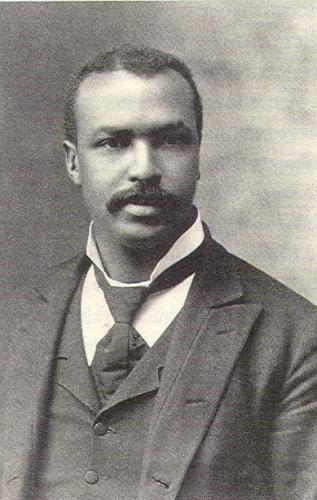
Henry Hugh Proctor was a minister of the First Congregational Church in Atlanta, the second-oldest African American Congregational church in the United States. He was also an author and lecturer.

Florida Ruffin Ridley was an African-American civil rights activist, suffragist, teacher, writer, and editor from Boston, Massachusetts. She was one of the first black public schoolteachers in Boston, and edited The Woman's Era, the country's first newspaper published by and for African-American women.

In the US, Black-owned businesses, also known as African American businesses, originated in the days of slavery before 1865. Emancipation and civil rights permitted businessmen to operate inside the American legal structure starting in the Reconstruction Era (1863–77) and afterwards. By the 1890s, thousands of small business operations had opened in urban areas. The most rapid growth came in the early 20th century, as the increasingly rigid Jim Crow system of segregation moved urban Blacks into a community large enough to support a business establishment. The National Negro Business League—which Booker T. Washington, college president, promoted—opened over 600 chapters. It reached every city with a significant Black population.

Rebecca Stiles Taylor was a journalist, social worker, and educator from Savannah, Georgia. She was best known for her contributions to the community as the founder of several charitable outlets in the area and as an activist for women's and civil rights.

Irene McCoy Gaines was an American social worker and civil rights activist who fought against segregation throughout her adult life.

Rosa L. Dixon Bowser was an American educator. She was the first African-American teacher hired in Richmond, Virginia. She organized the Virginia Teachers' Reading Circle, which became the Virginia State Teachers Association, the first organization representing black teachers in Virginia, serving as the organization's president from 1890 to 1892. Bowser was president of the Woman's Christian Temperance Union in Virginia, as well as founder and first president of the Richmond Woman's League. She was a correspondent for the magazine The Woman's Era, and wrote essays for national publications.
Ada Belle Dement was an American educator and clubwoman. In 1941, she became president of the National Association of Colored Women's Clubs (NACWC).
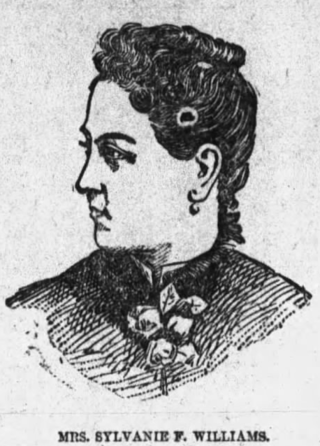
Sylvanie Francoz Williams was an American educator and clubwoman based in New Orleans, Louisiana, USA.
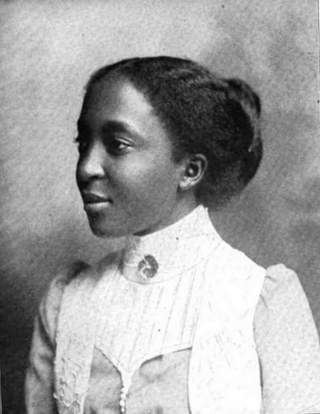
Lena Terrell Jackson was an American educator. She taught Latin to African-American students in Nashville, Tennessee for over fifty years.

Sadie Chandler Cole was an American singer, music educator, and civil rights activist based in southern California.
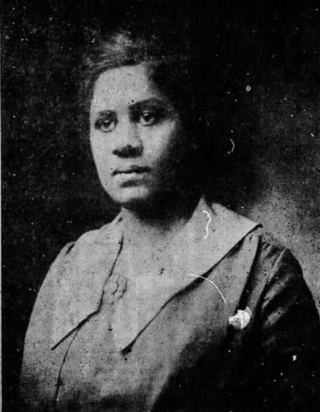
Ora Brown Stokes Perry (1882–1957) was an American educator, probation officer, temperance worker, suffragist, and clubwoman based in Richmond, Virginia.
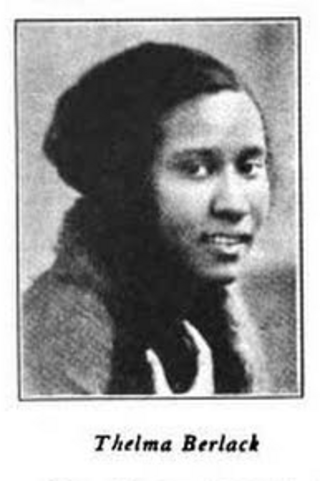
Thelma Edna Berlack Boozer was an American journalist, publicist, and city official in New York.

Helen Appo Cook was a wealthy, prominent African-American community activist in Washington, D.C., and a leader in the women's club movement. Cook was a founder and president of the Colored Women's League, which consolidated with another organization in 1896 to become the National Association of Colored Women (NACW), an organization still active in the 21st century. Cook supported voting rights and was a member of the Niagara Movement, which opposed racial segregation and African American disenfranchisement. In 1898, Cook publicly rebuked Susan B. Anthony, president of the National Woman's Suffrage Association, and requested she support universal suffrage following Anthony's speech at a U.S. Congress House Committee on Judiciary hearing.

The Phillis Wheatley Clubs are women's clubs created by African Americans starting in the late 1800s. The first club was founded in Nashville, Tennessee, in 1895. Some clubs are still active. The purpose of Phillis Wheatley Clubs varied from area to area, although most were involved in community and personal improvement. Some clubs helped in desegregation and voting rights efforts. The clubs were named after the poet Phillis Wheatley.
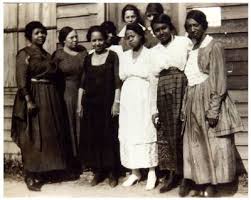
Fannie Hopkins Hamilton(1882 – 1964) was a dress maker and suffragist who joined the Equal Suffrage Study Club and uplifted the black community in Wilmington, Delaware. She was a leader, contributor, activist, and supportive teacher throughout her life as a suffragist.

Martha Broadus Anderson, later Martha B. Anderson-Winn or Martha B. Winn, was an American singer based in Chicago, and vice-president of the National Association of Negro Musicians.